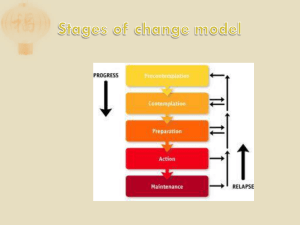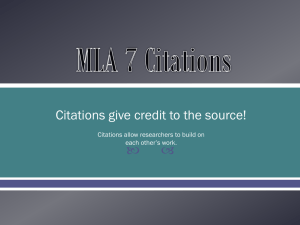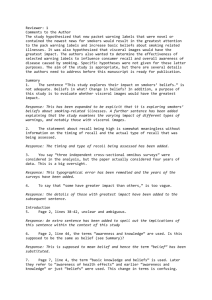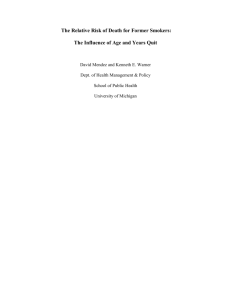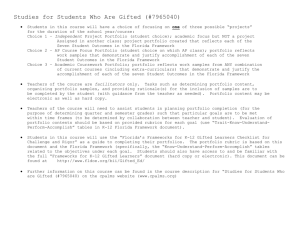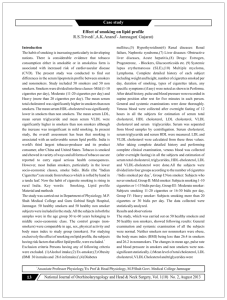Good for Us Taxation: Therapeutic Justifications for Arbitrary Taxation
advertisement
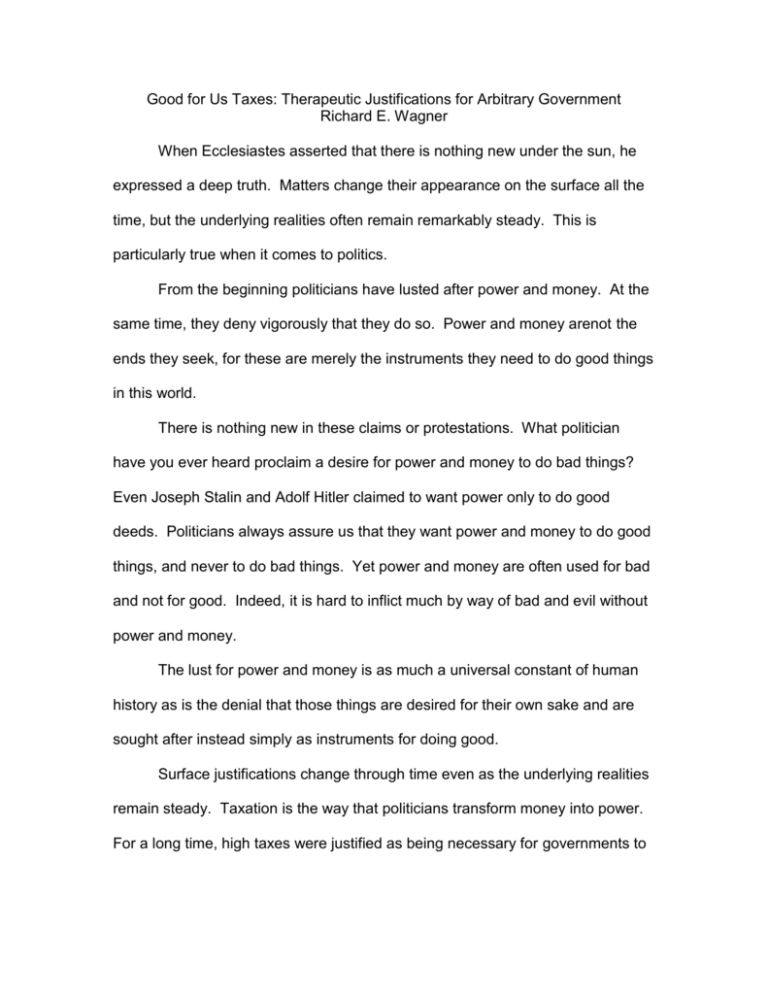
Good for Us Taxes: Therapeutic Justifications for Arbitrary Government Richard E. Wagner When Ecclesiastes asserted that there is nothing new under the sun, he expressed a deep truth. Matters change their appearance on the surface all the time, but the underlying realities often remain remarkably steady. This is particularly true when it comes to politics. From the beginning politicians have lusted after power and money. At the same time, they deny vigorously that they do so. Power and money arenot the ends they seek, for these are merely the instruments they need to do good things in this world. There is nothing new in these claims or protestations. What politician have you ever heard proclaim a desire for power and money to do bad things? Even Joseph Stalin and Adolf Hitler claimed to want power only to do good deeds. Politicians always assure us that they want power and money to do good things, and never to do bad things. Yet power and money are often used for bad and not for good. Indeed, it is hard to inflict much by way of bad and evil without power and money. The lust for power and money is as much a universal constant of human history as is the denial that those things are desired for their own sake and are sought after instead simply as instruments for doing good. Surface justifications change through time even as the underlying realities remain steady. Taxation is the way that politicians transform money into power. For a long time, high taxes were justified as being necessary for governments to provide valuable public services that citizens want but which they could not secure efficiently through ordinary commercial channels. Over the past generation or so, this justification has come to be widely recognized as false. Study after study has shown that governments are not efficient providers of services, and for the most part people can supply their wants and needs more efficiently through ordinary commercial channels. Retirement is better supplied through private commerce than through government’s social security programs. Schools are operated better through free commerce than through government power. This list of commercial superiority goes on and on. As citizens have come increasingly to recognize the general superiority of commercial arrangements, it has become harder and harder for governments to grab increasing amounts of tax revenue. But the political lust for money and power is as strong as ever. The justifications for using political power to acquire money, however, are changing with the times. We hear less and less about the need for money to provide services that people can’t secure efficiently through commercial channels. What we are hearing about instead is how government can help us to resolve some of our own personal problems. Many of the new justifications for taxation run in terms of government as therapist. Taxation is portrayed as a means to help people secure their personal well being. Everyone knows that smoking might be harmful, but many people do it anyway. Recently, the Centers for Disease Control and Prevention issued a study that placed the cost of smoking at about $7 per pack of cigarettes. A good 2 deal of economic analysis points out that smokers pay these costs themselves through lost earnings and higher medical bills. The therapeutic claim, however, finds this point irrelevant. The tax is justified not to recover the costs that smokers impose on society in general. Rather the tax is justified as a kind of therapy for smokers. A tax on cigarettes would be a way of helping smokers to kick a habit that is not good for them and which costs them a lot of money. A therapeutic government would tax cigarettes to help smokers fight an addiction, and would not represent a simple lusting after power and money. Similarly, the Surgeon General has started to attack unhealthy diets and sedentary behavior. A report was issued recently that claimed that nearly as many people die from obesity as die from smoking. Fat taxes are being enlisted as means of helping people to fight obesity. In April 2002, a bill was introduced in the California legislature to tax sweetened beverages. This bill was justified not as a simple effort to grab more revenue, but as a therapeutic effort to help people fight their unhealthy accumulation of flab. The possible candidates for therapeutic taxation are almost endless. It has often been observed that the most rabid anti-smokers or antidrinkers are former users who have quit, and have since morphed into crusading zealots against their old patterns. By the same token, we are now witnessing the birth of reformed politicians who still lust after power and money, only now claim to do so because they are helping us to overcome some weakness in our willpower. Whenever you hear a politician say “I want power and money 3 because …,” stop him right there. There is nothing more that needs to be said, for there really is nothing new under the sun. 4

